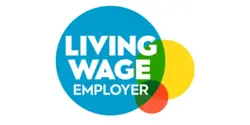The STADA Health Report 2024 launches in Rome
Today the STADA Health Report 2024 launched in Rome with an international audience of journalists and health industry thought leaders. The report, which surveyed 46,000 people across 23 countries, is the largest and most comprehensive international study in the industry, covering an expansive range of health-related topics.
Now in its 10th year, the report examines the behaviour of the European population and its physical and mental health, looking at current trends and events and highlighting developments over time. Following STADA’s purpose of “Caring for People’s Health as a Trusted Partner”, this year’s Health Report provides valuable insight into uncomfortable truths and pressing issues, exploring possible causes and solutions. Here are some of the key findings.
The future of pharmacy and healthcare
This year’s report shows a clear appetite for the ‘Pharmacy First’ scheme to go even further in the UK, with 44% of respondents calling for the scope of responsibility that pharmacists have to support doctors to be increased, to offer more availability of existing services and introduce new ones.
It reveals that 40% of people in the UK would like the option to book a personal consultation online, and one in three (33%) want the ability to have prescriptions delivered to their homes. Merging other health-related services like eye and hearing tests into the services of pharmacies appeals to 32% of people, whilst 23% of people want patient education on specific disease topics. 21% of people would also like to see investment in technology that lets customers better explore and understand their medications.
The data also shows that large numbers of people are turning to AI and online diagnosis as they look for quicker and easier ways to access a wider range of healthcare services and advice. A growing number of people in the UK (56%) are Googling their symptoms, 23% of people are seeking health advice from social media and influencers, and one in ten people (10%) are even turning to AI chatbots for self-diagnosis.
Finding it “reassuring” to see Brits open to involving more technology in healthcare, Nigel Stephenson, General Manager at STADA, Thornton & Ross, mentions the significance of pharmacies, as a “vital resource that can support the wider health economy in the UK to improve satisfaction, preserve the NHS GP resource, and ensure that as a nation we can sufficiently care for people’s health as trusted partners.
“Pharmacies are often at the heart of our communities and have the skills and resource to support the NHS in a much bigger way, which we are seeing thanks to the rollout of Pharmacy First,” Stephenson continued.
The impact of social media on mental health
Alongside the new data on healthcare schemes, the impact of increasingly complex wellbeing challenges faced by young people in Britain today has been brought into sharp focus, highlighting the consuming concerns of the UK’s young adults.
The report reveals that nearly two-thirds of young adults (65%) say they are lonely, with one in three (32%) directly attributing their loneliness to the excessive amount of time they spend online. More than one in ten (13%)18-24-year-olds say they always feel lonely, and one in five (19%) describe their loneliness as ‘severe’.
A correlation between body image concerns and excessive time on social media is clearly demonstrated within the report. 70% of people in the UK with poor mental health say they want stricter regulations on social media beauty filters, and nearly half (45%) of British 18–24-year-olds constantly compare themselves to the influencers they see online. 38% of young women struggling with low self-worth, say they feel they can't match the perfect bodies they see on their feed every day.
“STADA is dedicated to caring for people's health as a trusted partner, and this goes beyond our company.” Nigel Stephenson added. “There is clearly work to be done in all quarters in the UK to promote realistic and diverse representations of beauty and provide better mental health resources to help our country’s young people navigate these challenges.”
The 2024 STADA Health Report also reveals a surprising generation gap in how those in the UK approach wellbeing. While 58% of over-70s prioritise brain training with activities such as crosswords and sudoku, stressed young adults seem less enthusiastic. Despite 45% of 18–24-year-olds saying they often feel burnout, a staggering 57% of the age group report lacking the motivation to actively improve their mental health.
For more data and insights from the 2024 STADA Health Report, please visit: https://www.stada-healthreport-2024.com/en





